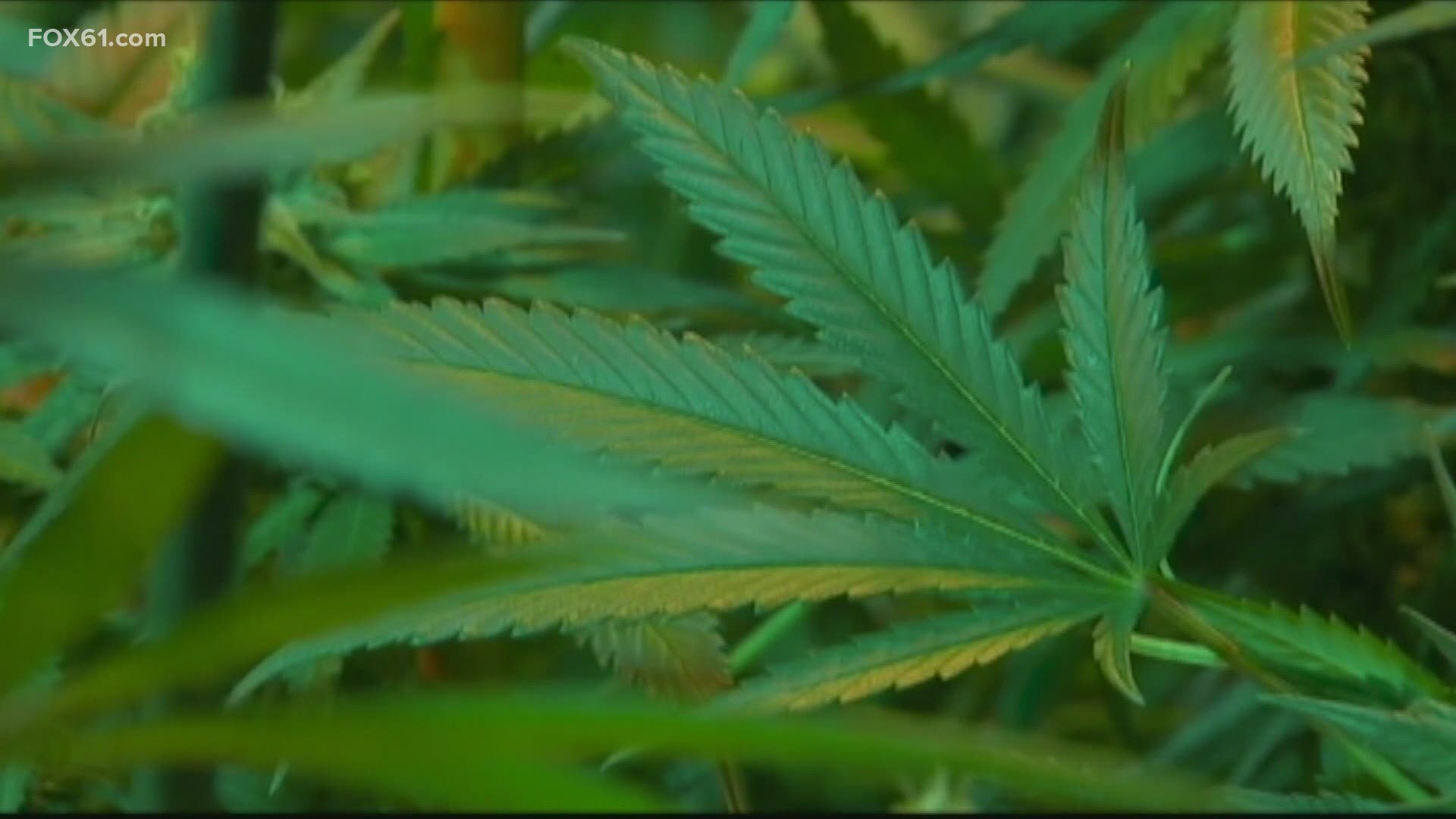CONNECTICUT, USA — Governor Lamont says prohibition doesn't work and if passed the bill would allow adults 21 and older to possess and purchase up to one and a half ounces of cannabis from a licensed retailer.
Senate Bill 888 focuses on legalizing and regulating the adult use of marijuana. The three biggest components decriminalization, regulation, and revenue generation.
"This has been a long time coming, we've been talking about this for ages, and now is the time to legalize adult-use, recreational marijuana in a carefully regulated way," said Gov. Lamont.
The state estimates $33.6 million in revenue for the fiscal year 2023.
In Connecticut, medical marijuana became legal in 2012 and the department of consumer protection says the current program would set an example for recreational rules and regulations.
In the proposal, certain criminal records for possession of marijuana would be automatically wiped clean.
"It's important to keep in mind if you take that out of the flow of business in our criminal courts u allow prosecutors and judges and police focus on higher risk offenders and that by itself is a good thing," said New Haven University associate professor of criminal justice Mike Lawlor
The proposal also focuses on helping high-risk communities suffering from drug abuse and crime, by developing an equity commission.
Community leaders say they would like to see revenue set aside to help urban areas, like New Haven, Stamford, and Hartford.
"Through an equity commission you have policies that are promoted that can and do help and directly and indirectly reduce poverty and the communities that will be impacted by the equity commission will receive greater resources to enhance the community," said Reverend Tommie Jackson of Rehoboth Fellowship Church in Stamford.
Governor Lamont says his proposal includes working with neighboring states. During the roundtable, the mayor of Middletown pointing out that many residents make the trip to nearby Massachusetts to purchase marijuana.
"Obviously these are places taking in money hand over first from customers and in addition to revenue on the stateside, there is also revenue opportunity for cities and towns," said Mayor Ben Florsheim
The Connecticut police chiefs' association expressed their opposition to the bill, citing the lack of qualified roadside testing for suspected drivers who may be under the influence of marijuana. The association released a statement reading in part:
"This bill, if passed, will diminish the safety of our roadways, while at the same time law enforcement is still dealing with the effects of the opioid crisis and the impact that has had on roadway and pedestrian safety."
Under this proposal, legal marijuana sales in the state could begin in mid-2022. A public hearing on the bill will be held this Friday.

